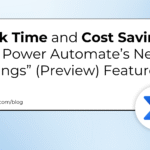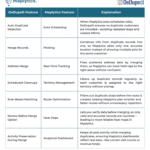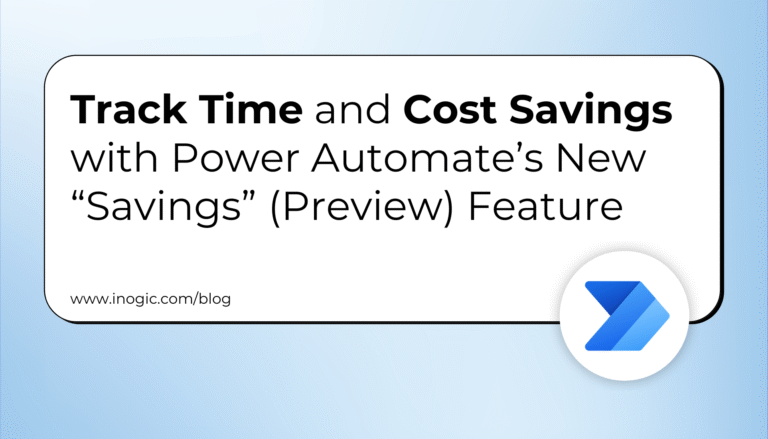Finance and accounting professionals perform tasks that are often complex, demanding, and incredibly consequential to the success of their company. As such, they rely on many technical skills gathered through years of experience and education. But, mathematical skills and role-specific expertise are just a piece of the puzzle – success in finance or accounting also requires a number of equally important soft skills.
Below, we’ll cover eight valuable soft skills and explain why these attributes are instrumental to success in the finance and accounting fields. If you want to get ahead in your career, these are the attributes you should actively work on improving.
Or, if you’re hiring for a new finance or accounting position, our tips will be just as useful – as these are the skills you should be looking for in any job candidate.
Launch sophisticated compensation plans fast
Is outdated commissions management hurting your growth? See how to quickly create automated incentive plans that motivate your reps.


Soft skills vs. hard skills
For those who may be new to the workforce, we want to take a minute to distinguish the difference between hard skills and soft skills. Hard skills are job-specific duties required of a role. These are often technical, measurable, and objective. Hard skills can be taught or learned through training. Examples of hard skills include copywriting, data analysis, project management, and computer programming.
Soft skills, on the other hand, aren’t job specific. They’re more subjective, but equally important skills that make someone a valuable asset in any role they may take on. Some soft skills include: communication, collaboration, leadership, and problem-solving.
Neither skill set is more or less important than the other. In fact, the ideal employee possesses an equal mix of both soft skills and hard skills. But, in professions like finance or accounting, where the focus is often on the more technical aspects of the role, it can be easy to overlook the importance of soft skills.
8 essential soft skills for finance professionals
Whether you’re a hiring manager looking for your next candidate or a finance professional looking to develop your skill set, remember to keep these eight finance soft skills in mind.
1. Communication
Communication skills are in high demand across all industries, but are especially essential for finance workers. You may be a technical wizard, highly trained in all kinds of billing and cash flow analysis activities, but the results you produce are only as good as your ability to communicate them to key stakeholders.
For example, say you’ve just released your monthly commission statements to your sales team. You’ve already taken every measure to calculate their commission in the most efficient, accurate manner possible. But, a sales rep has a question about their statement, as they believed they were set to earn more than the statement indicates.
If you approach compensation communication with clarity and precision, you’ll be able to quickly explain the numbers to this sales rep, thus earning their trust and cultivating a strong interpersonal relationship, while also alleviating their confusion. On the other hand, if you come off as dismissive, unconfident, or hard to understand, you’ll only exacerbate their concerns and these problems are likely to reoccur.
The same logic applies to good communication with senior leadership – if you can present your analysis and ideas confidently and concisely, you’ll be able to earn their support and influence their decision-making.
Think of communication in finance as an act of translation: you must be able to convert intricate technical concepts and hard data into clear, digestible information that peers and stakeholders can trust and understand.
2. Attention to detail
The work you do as a finance or accounting professional is both highly impactful and highly sensitive. After all, you’re dealing with money, whether you’re managing budgets, calculating payroll, fulfilling an invoice, and so on.
That’s why attention to detail is so critical to your performance. Any error or oversight won’t go unnoticed, whether it’s a small issue, like a negligible typo in a budgetary document, or a major mistake, like a miscalculation in an earnings statement. Keen attention to detail will go a long way in preventing these issues and producing work that is efficient and accurate rather than rushed and error-prone.
3. Organization
It’s incredibly difficult to succeed in finance and accounting without organizational skills. When working on any given project, you might need to manage large amounts of financial data, while adhering to strict deadlines and ensuring both accuracy and compliance.
That’s a lot of critical factors to consider – and too much for an unorganized worker to handle. If you don’t create and adhere to a hyper-structured process, you’ll either be scrambling and rushing through tasks, which makes you prone to error, or you’ll become bogged down by inefficiencies and struggle to meet deadlines.
The best financial workers are always interrogating their own process, seeking to identify areas where they’re unnecessarily wasting time, risking accuracy, or misusing resources.
4. Digital dexterity
This next finance skill once again speaks to the dynamic nature of the financial industry. Companies adopt new finance solutions frequently, either replacing legacy software or filling a need with an entirely new solution. So, while you may possess hard skills in terms of proficiency with specific tools, you must also cultivate the soft skill of adaptability – or more specifically, digital dexterity.
Digital dexterity refers to your ability to quickly pivot to new and potentially unfamiliar technologies. You might be a master of a budgeting software your company adopted years ago, but what happens if they decide to switch to a different solution? Adaptable employees step up in these scenarios, learning the ins and outs of the new technology and helping others become proficient as quickly as possible.
In finance and accounting, being digitally dexterous means that the value you bring to the table isn’t contingent on one specific tool.

Thanks, you’re subscribed!

5. Problem-solving
If you work in finance or accounting, you likely have a number of regimented processes in place to help you accomplish very data-driven responsibilities. But, when change occurs or conflict arises, you can’t always fall back on numbers and systems – you must also be able to think outside the box and leverage intuitive problem-solving skills.
Problem solving refers to your ability to remove blockers, prioritize work, act with urgency, and make good judgment calls in the face of adversity.
6. Multitasking
You might prefer to use tunnel vision to see a single important task to completion, but this strategy runs counter to the reality of any finance or accounting position. More often, you’ll have to juggle multiple tasks and responsibilities, including processing transactions, preparing financial reports, fielding inquiries from stakeholders, and responding to urgent issues.
So, not only will you need to multitask, but you must also do so effectively. In other words, your efficiency and attention to detail can’t falter as you take on additional work and responsibilities.
7. Foresight
If you want to truly excel in finance or accounting, you must have vision. This means, being able to see the big picture, understand the impact of market and internal changes, and you must be able to accurately predict how your role, company, and industry at large will change in the future.
Of course, even the best finance workers don’t have a crystal ball that tells them what the market will look like a year from now. But, you should make efforts to anticipate change, particularly when it comes to trends that may impact your organization, either financially or operationally.
For example, consider a recent uptick in state regulations around pay transparency and reporting. Imagine you’re working at an organization that falls outside of the jurisdiction of these regulations, and therefore hasn’t made any substantial changes to its operations.
However, considering this trend of emerging laws, you predict that within the next year, your company will be subject to similar regulations. So, you recommend proactive measures, including an audit of your compensation reports, in order to ensure that your company is tracking and reporting on the data points necessary to adhere to regulations that might soon be enforced.
In this scenario, you will have helped your organization stay ahead of the current landscape, so that when a consequential change does occur, they’re ready to take it in stride rather than scramble to quickly fill operational gaps.
8. Empathy
Finance and accounting professionals are often characterized as technical, data-driven workers who defer to their rigid processes in moments of conflict. While that may be partially accurate, it’s equally important to possess and demonstrate empathy and emotional intelligence in your day-to-day interactions with stakeholders.
Remember, finances are a delicate matter, and you never know what financial challenges a stakeholder may be dealing with. If you respond to inquiries or concerns with a cold, numbers-first approach, you might answer their questions– but you’ll likely lose their trust and alienate or offend them.
Approach every interaction with empathy – show people that you care, you’re listening, and you’re willing to work with them to reach mutual understandings and resolutions.
Work on honing soft skills alongside your technical abilities
There are plenty of ways to hone your finance skills, from developing new technology expertise to becoming more well-versed in data management and analytics. But, the next time you’re taking stock of what you need to improve upon, pay equal attention to your soft skills. These qualities aren’t just personality traits that will make you a nice employee to have around; they’re improvable skills that, when combined with the right hard skills, can make you more valuable to your organization and accelerate your career.
Motivate your team with transparent incentive pay
Discover the power of automating commissions with Salesforce Spiff, and easily create incentive programs that scale.












